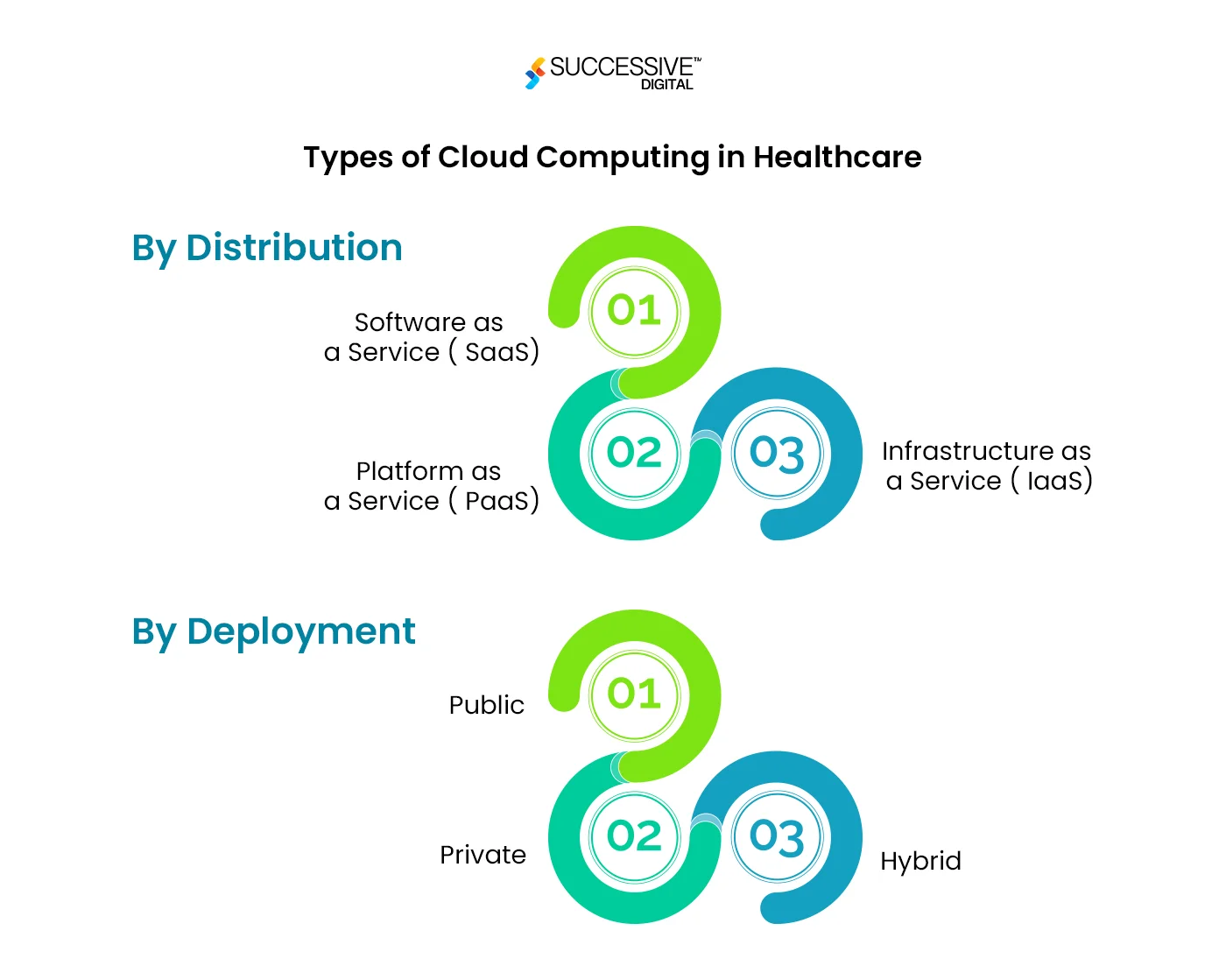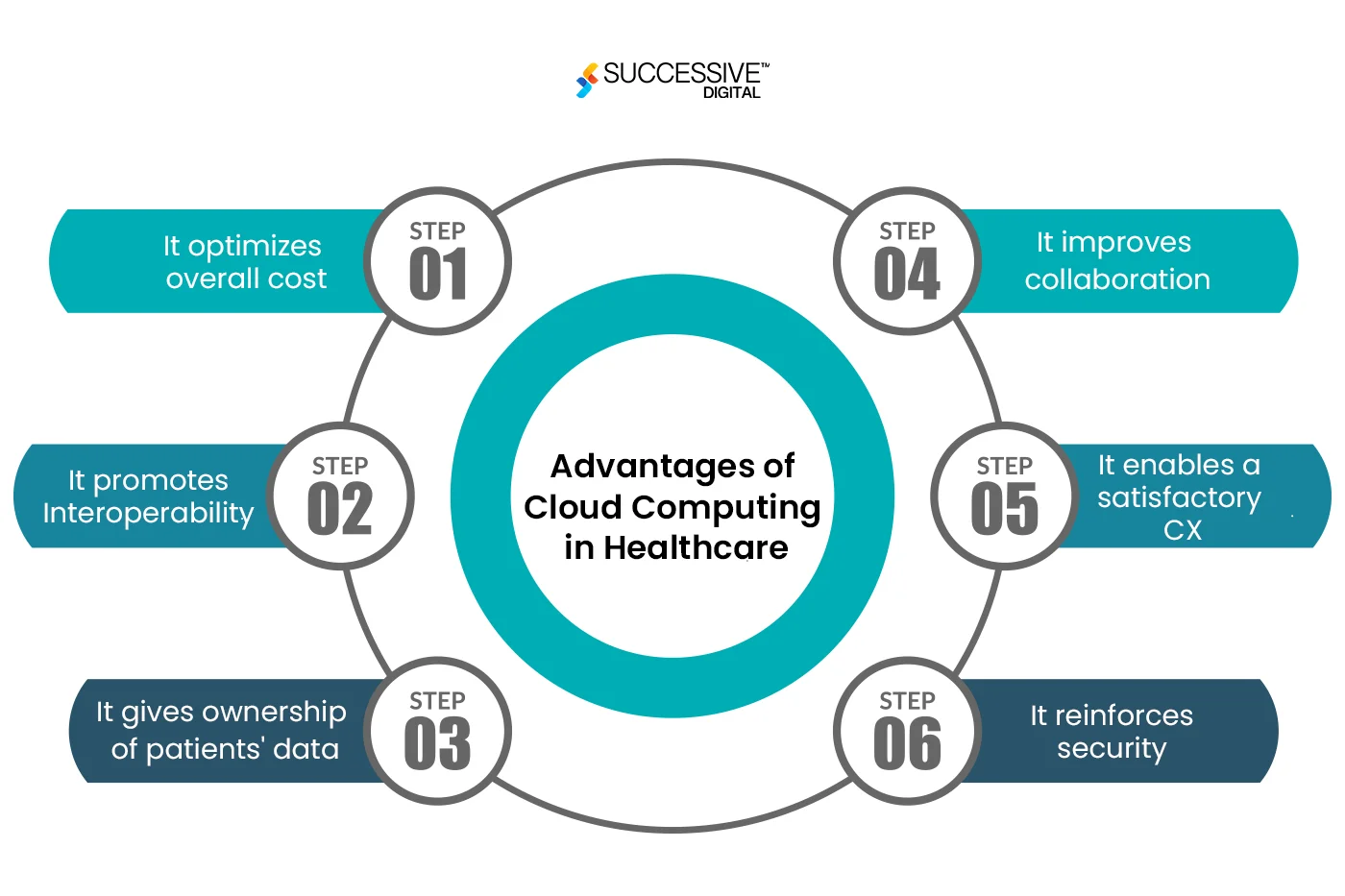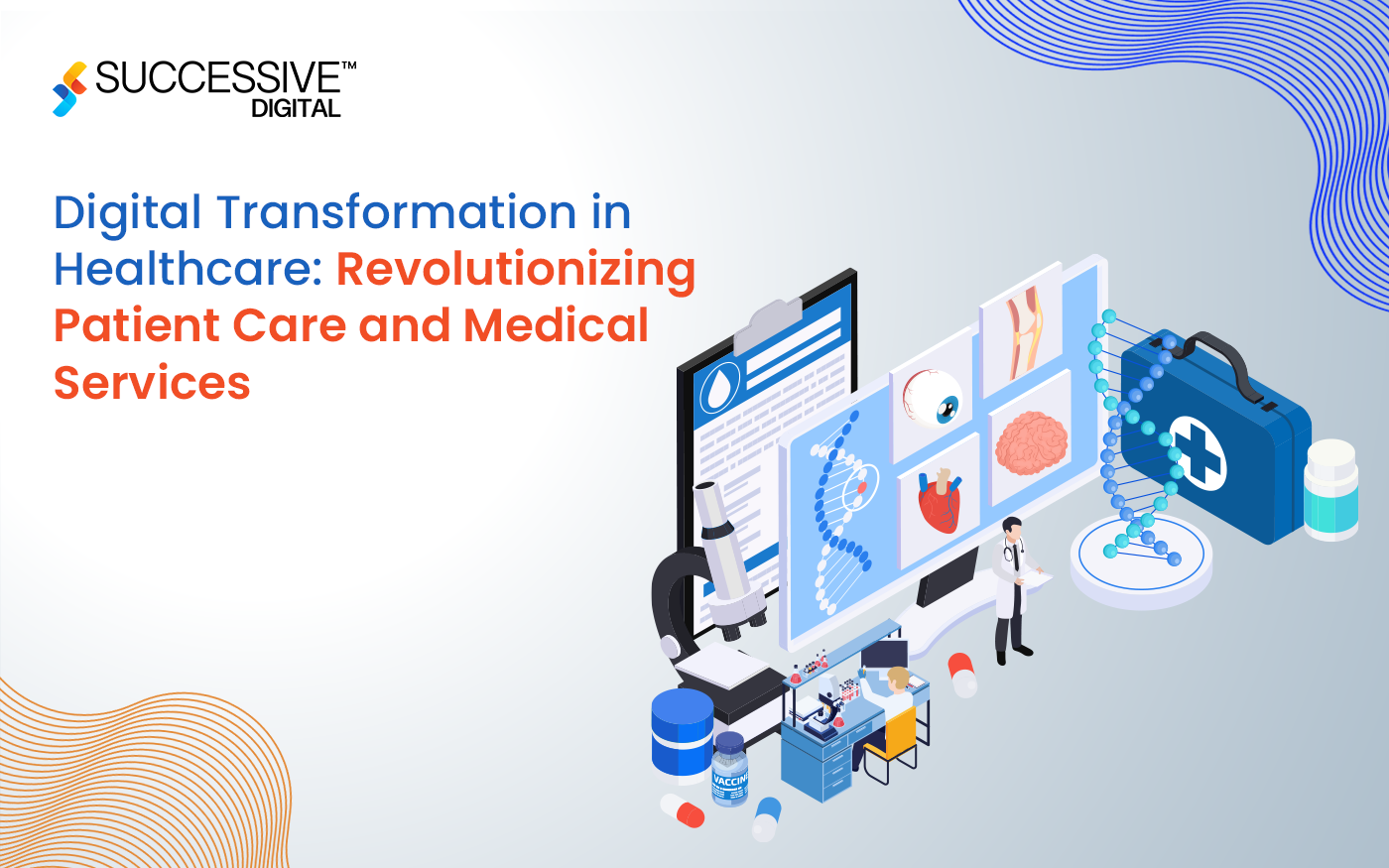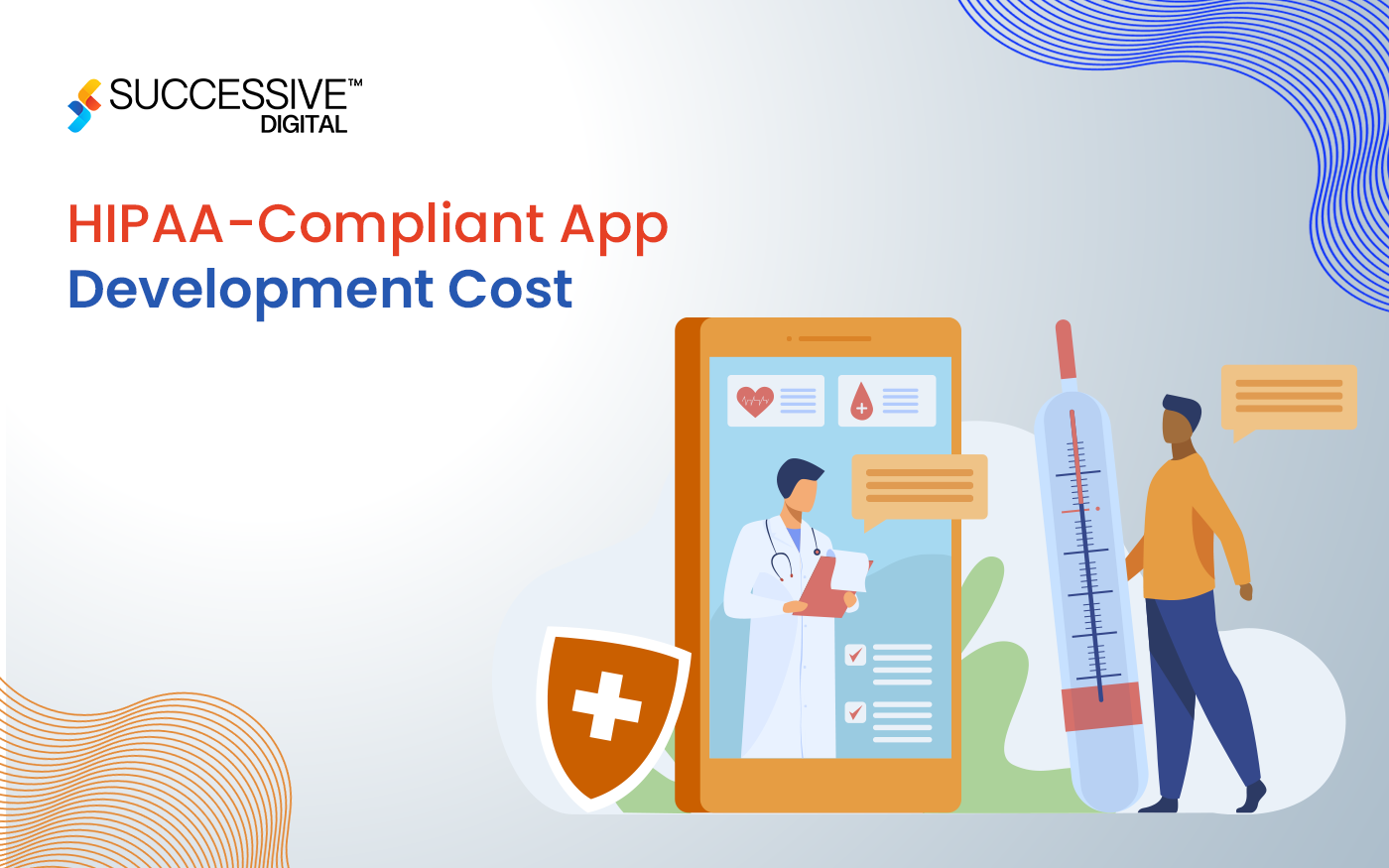When discussing digital transformation influencing the healthcare sector, we typically use terms like artificial intelligence, machine learning, IoT, and even SaMD (software-based medical devices). While these technology trends are essential for healthcare organizations’ growth, cloud computing is the foundation for these next-gen technical breakthroughs.
The healthcare industry is complex due to the enormous number of operations involved and the amount of private and sensitive information it handles. The industry’s complexity frequently leads to two significant challenges: higher operational costs (including data storage costs) and difficulties establishing a self-sufficient health ecosystem.
Technology has always been the rescuer, providing a workaround for addressing key healthcare business issues. One such technology is cloud computing. It has been used in the healthcare industry for many years and is constantly evolving to reflect industry trends. Cloud computing in healthcare enhances the healthcare business on multiple levels, including collaboration, scalability, reachability, efficiency, and security.
It has transformed how medical data is created, consumed, stored, and shared. McKinsey estimates that cloud-based healthcare solutions will be worth between $100 billion and $170 billion by 2030. The fundamental driver of this expanding value is enabling healthcare organizations to pioneer, digitize, and achieve their strategic goals more effectively.
Why are Healthcare organizations moving to the cloud?
Healthcare organizations have been implementing new technology to optimize procedures, introduce new patient care apps, and improve healthcare services. Despite these IT solutions, issues such as high infrastructure costs, computing resource requirements, scalability, global access, multi-tenancy, and increasing demand for cooperation still prevail.
Cloud Computing in healthcare resolves such challenges by:
- Cloud computing offers on-demand services that help to deploy resources without human intervention.
- It is an effective resource pooling technique, as multiple users can utilize cloud services.
- It enables elasticity, making it possible to remove, upgrade, or add resources per the requirement.
- Cloud computing in healthcare enables accessibility for a wide range of networks anytime from any place.
- And the best part, you only pay for what you utilize.
Read this blog to know more – How can you best purchase cloud storage space for your business solutions?
An Overview of Cloud Computing in Healthcare
Cloud computing in healthcare industry involves implementing remote server access via the Internet to process, manage, and store medical data. This approach allows healthcare stakeholders to access servers where data is hosted remotely. The remote accessibility of healthcare data removes geographic obstacles to getting medical services.
Cloud computing in healthcare has two applications for patients and healthcare providers: it allows them to securely access enormous amounts of data from anywhere at any time, improve patient care, streamline operations, and automate other operations.
For medical organizations, virtualization in cloud computing reduces operational costs while allowing them to provide high-quality, tailored treatment. On the other hand, patients are becoming accustomed to the immediate delivery of healthcare services. These are some of the applications of cloud computing in healthcare.
Types of Cloud Computing in Healthcare

Cloud computing in healthcare majorly works in the following two models:
One is By Distribution
- Software as a Service ( SaaS)—We have all heard about this. In this model, the cloud provider offers IT infrastructure for the client to deploy operating systems and applications.
- Platform as a Service ( PaaS): In this model, the client gets everything in a ready-to-use module.
- Infrastructure as a Service ( IaaS)—As its name suggests, the provider offers an IT infrastructure and operating systems for the client to deploy applications.
One is By Deployment
- Public- All the stakeholders can access.
- Private- Only one set of healthcare chains can access.
- Hybrid- It is a combination of multiple clouds with different access authority.
Read more about the cloud deployment models here- What Are The Deployment Models In Cloud Computing?
Advantages of Cloud Computing in Healthcare

Cloud computing has given a breakthrough for the healthcare industry by providing on-demand availability, high-data accessibility, and internet-based services. This is why tech-savvy medical professionals are rapidly embracing cloud technology in healthcare, for all of its advantages, to meet the demands of patients and businesses efficiently. Here are a few benefits of cloud computing in healthcare:
-
It optimizes overall cost
The key advantages of cloud computing in healthcare are the near-instant availability of resources such as data storage and computational capacity. There are no upfront costs associated with healthcare cloud adoption; they will only pay for the resources they utilize.
Furthermore, it provides an ideal environment for growing while remaining cost-effective. With patient data coming in from several sources, such as EMRs, healthcare apps, and wearables, a cloud solution for healthcare allows you to increase storage while keeping prices down.
-
It promotes Interoperability
Interoperability focuses on building data integrations throughout the healthcare system, regardless of where the data originates or is hosted. It makes patient data available for easy distribution and analysis to improve healthcare service.
Furthermore, cloud computing for healthcare allows medical personnel to access a wide range of patient data, share it with relevant stakeholders, and provide prompt protocols. Interoparability is one of the many benefits of cloud computing in healthcare.
-
It gives ownership of patients’ data
Cloud computing in healthcare democratize data and give patients more control over their health. They encourage patients to participate in critical health-related choices, serving as a tool for improved patient engagement and educational opportunities.
Furthermore, cloud-based healthcare allows for the easy storage and retrieval of medical data. When system uptime increases, data redundancy decreases significantly, making data recovery easier.
-
It improves collaboration
Healthcare cloud adoption significantly improves collaboration among healthcare stakeholders, providers, and patients. Patients no longer need to bring their medical records to every doctor’s appointment because they are saved in the cloud.
Doctors may readily access the information, see the results of prior exchanges, and even communicate with one another in real time. This allows them to give more personalized and effective treatment.
-
It enables a satisfactory customer experience
Cloud computing in healthcare also increases patient engagement in the delivery of medical services by providing real-time access to medical data, test results, and even doctor’s notes. Furthermore, cloud-based healthcare protects individuals from being overprescribed or dragged into unneeded testing; details on both may be found in medical records.
-
It reinforces security
The healthcare industry deals with vast amounts of data daily, making it a prime target for malevolent attackers, increasing the danger of data breaches and cyber-attacks. Medical institutions and healthcare providers can assure foolproof security by using cloud computing tools that proactively alert them to questionable attempts.
Furthermore, cloud solutions for healthcare allow professionals to outsource data storage to cloud service providers such as AWS or Azure to quickly comply with security and privacy regulations such as HIPAA and GDPR.
Want to know more about cloud cost optimization refer to this blog- AWS Cost Optimization: Strategies for Maximizing Cloud Efficiency
Risks Associated with Cloud Computing in Healthcare
Every advanced approach comes with it’s own set of risks. Here are some challenges of cloud computing in healthcare:
-
Lack of Specialists
Locating experienced developers specializing in incorporating new technology into healthcare software can take time and effort. Similarly, it takes work to identify cloud specialists in the healthcare industry.
-
Limited Ecosystem
Cloud services in healthcare alone cannot make the industry more efficient. Organizations must integrate cloud computing, the Internet of Things, and data management platforms to create a successful analytics architecture.
-
Difficulty in Cloud Adoption
Switching from legacy to cloud systems demands a fundamental change in the operational process. Healthcare firms needs experienced cloud consultants to educate everyone involved in the process on how technology assist their daily tasks.
-
Security Challenges
Storing medical data in the cloud is critical for healthcare cloud adoption. However, this raises the possibility of data breaches. In a typical cloud configuration, one organization’s data shares the server with other healthcare organizations, and the isolation methods to separate them may fail. This results in enterprises needing to secure their cloud infrastructure against growing cyber threats.
How Cloud Computing Has Transformed Healthcare: Connect with Real-World
Philips Healthcare
Philips Healthcare has revolutionized healthcare with cloud computing, providing breakthrough cloud-based solutions that break down data silos, activate secure, linked care, and enable scalable, cost-effective innovation across the care continuum. These products, such as the Philips Patient Flow Capacity Suite and Philips Acute Care Telehealth, are part of the HealthSuite platform, which provides a secure, cloud-based infrastructure for healthcare systems to integrate informatics applications, deliver precision care, and enable care anywhere.
Soniphi
Soniphi, the first resonant frequencies-based personal wellness system, employs cloud-based healthcare technologies to provide patients with a comprehensive well-being analysis report via their healthcare apps. Their cloud-based architecture enables early disease detection, remote patient monitoring, and telehealth consultations.
Pfizer
Pfizer is a biotechnology and pharmaceutical corporation. It has used cloud computing in medicine to improve collaboration across all aspects of its projects since 2016. Pfizer recently made headlines after collaborating with BioNTech to create the COVID-19 vaccine. In addition, the company collaborates with Amazon Web Services to develop cloud-based solutions to enhance clinical trial creation and dissemination.
Embrace Cloud Computing with Successive Digital
Successive Digital is a promising name when it comes to delivering quality services and driving digital transformation for modern businesses, including Healthcare. Here’s a story of one of our clients who embraced cloud computing and accelerated a journey of growth and success:
Our client a MedTech-based healthcare provider, sought to revolutionize medical screening by offering personalized at-home screening services. By tailoring the screening process to individual risk profiles, the company aimed to simplify medical testing and improve HEDIS quality while closing screening gaps.
To achieve this vision, it needed to standardize its application’s code using best practices and modernize its infrastructure to leverage the advantages of the AWS cloud. The goal was to enhance the application’s availability, scalability, and security while ensuring compliance with industry standards.
Upon engaging with Successive, an experienced cloud consulting company, the client embarked on a journey of application modernization using AWS. Successive consultants adopted a strategic approach, leveraging AWS to implement a well-architected framework that enabled operational excellence, round-the-clock monitoring, and faster content delivery at edge locations.
This approach also ensured high availability and fault tolerance for the client’s services. The transformation included deploying a tier-based architecture for the application, with frontend static web hosting on S3 and CloudFront distribution, dynamic web application on multiple EC2 instances in public and private subnets, and Aurora serverless for database management.
As a result of this collaboration, the client has successfully leveraged AWS cloud solutions to expand its global presence. The company now benefits from enhanced security, high performance, and increased availability, leading to substantial cost savings. The client is rapidly expanding its market reach to new geographies while adhering to regulatory policies more efficiently than ever before.
This successful partnership with Successive has positioned the client as a leader in at-home medical screening, driving innovation and improving healthcare accessibility for individuals worldwide.
Healthcare IT Modernization on Cloud Infrastructure: Must Know
Healthcare IT modernization on cloud infrastructure entails healthcare businesses switching from traditional on-premises technologies to cloud-based solutions. This transition allows enterprises to move data integrations to the cloud, which supports new business prospects, improves data security, and lowers expenses.
Moving electronic medical record (EMR) software to the cloud can increase healthcare businesses’ scalability, collaboration, and data analytics capabilities. Healthcare organizations are increasingly adopting hybrid multi-cloud architectures, with investments in IT modernization aimed at using AI, improving security, and ensuring sustainability.
Cloud infrastructure modernization enables healthcare organizations to streamline operations, improve patient outcomes, and increase clinician efficiency. Data portability, AI assistance, and enhanced security and compliance controls are vital motivations for modernizing healthcare IT infrastructure.
Cloud modernization approaches, such as containerization, serverless application development, and managing data and analytics, provide significant business value, including revenue growth, cost savings, and operational resilience.
Read more about legacy modernization here- Modernizing Legacy Systems in Healthcare: A Comprehensive Guide
To Sum Up
The healthcare industry has a lot of complex and sensitive data, which can now be securely stored in the cloud. Cloud Computing is a vast field that includes infrastructure modernization, cloud migration, application modernization, and many more. This blog has covered advantages and disadvantages of cloud computing in healthcare, along with risks associated with it. It is high time that businesses embrace cloud computing in healthcare and drive transformation.












